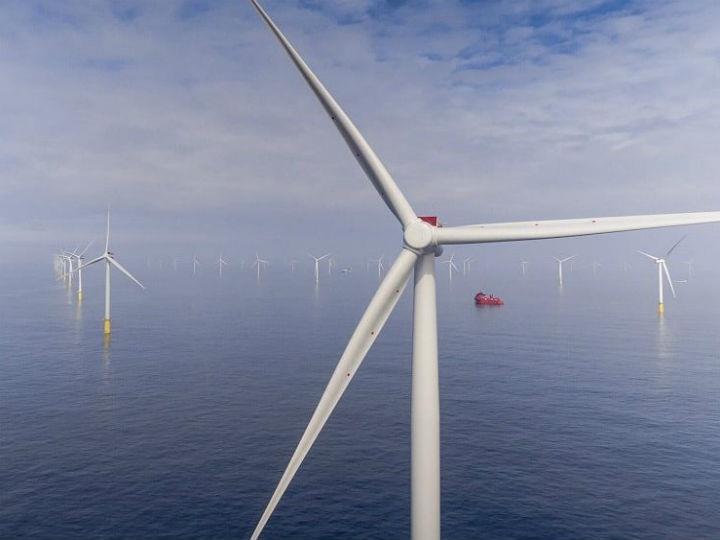by Eugene Chen*
The European Commission, like many governmental bodies around the world, is thinking critically about its international economic policy and has recently launched a major review of its trade policy in order to set the political direction for EU trade and investment policy in the years to come. The EU and Taiwan are like-minded partners in many respects, the offshore wind industry’s cooperation especially highlights the close bilateral investment link between the EU and Taiwan and demonstrates the urgent need for the EU to launch and conclude Bilateral Investment Agreement (BIA) negotiations with Taiwan. An EU-Taiwan BIA is supported by all stakeholders and we hope that the EU makes it a priority within its trade and investment policy.
Taiwan shares the EU’s sense of urgency on the need to address climate change. Taiwan’s low electricity operating reserve rate reminds us that going green is not just about protecting the planet, but it is also about energy security. The Ministry of Economic Affairs of Taiwan has set a target of 20% renewable energy generation by 2025. To reach this goal, offshore wind energy will play a vital role. Within this broader objective, the ministry has also set a target of building 5.7 GW of offshore wind capacity, thus making Taiwan the largest offshore wind energy producer in Asia. Furthermore, the overall capacity of offshore wind power in Taiwan from 2026 to 2035 will be 10 GW. This provides foreign investors with a huge opportunity.
The European offshore wind power industry is world-leading in terms of technology, experience, and construction capacity. European companies have never missed the opportunities in Taiwan in this regard, in fact, European companies won the largest proportion of the development projects in Taiwan from now until 2025. The increasing number of large-scale investments by European companies in Taiwan’s offshore wind farm projects demonstrates the importance of a BIA between the EU and Taiwan. After the EU and Taiwan sign a BIA, European companies will obtain further protection if they encounter relevant dispute settlement problems. It is therefore of great importance for the EU and Taiwan to provide their businesses with strong investment protection in the form of a BIA without any further delay.
A BIA will also help to establish resilient supply chains for businesses in both the EU and Taiwan. The potential transformation of the global supply chain due to the U.S.-China trade friction and the COVID-19 pandemic, has highlighted the importance of increasing the resilience and diversification of supply chains. Taiwan has long played a key role in the global supply chain. Enhancing the bilateral trade and investment relationship between the EU and Taiwan can contribute to the EU’s pursuit of “Open Strategic Autonomy”. We believe that a BIA between the EU and Taiwan will help both sides achieve their respective economic ambitions even faster.
Furthermore, an investment agreement would have a positive impact on FDI inflows in a number of different ways, including: investment promotion; investment liberalisation; enhanced investment protection; strengthened technological cooperation; increased predictability of the investment environment; the provision of a means for the effective resolution of investment disputes; and the assurance of fair legal and regulatory treatment to all investors. European investment in Taiwan already stands at record levels, having reached an accumulated value of €48.6 billion to date. The profits derived from European companies’ operations in Taiwan brings great benefits to many EU Member States and enterprises. Taiwan’s cumulative FDI in the EU has reached €7.9 billion, of which over 60% was made during the past 5 years and has created more than 60,000 European jobs. As many investors do consider investment treaties when deciding where, and how much, to invest, we strongly believe that a BIA between the EU and Taiwan will further encourage businesses on both sides to expand their investments in both the EU and Taiwan.
Although many industries have been damaged by the COVID-19 pandemic in 2020, we have been happy to see that European offshore wind power developers in Taiwan have taken practical steps to work around the effects of the coronavirus as best as they can. The Taiwanese government has also provided them with the necessary assistance and support to ensure the continued successful progress of their projects. This is a good example of both sides working to build a resilient supply chain through close cooperation. As the European Commission wants to deepen and refine its partnership with its friends and allies, we are convinced that a BIA with Taiwan would be one such way that the EU and Taiwan could enjoy mutual benefit.
*Economic Director of Taipei Representative Office in the EU and Belgium




 By: N. Peter Kramer
By: N. Peter Kramer
